Rewilding means more than recovering wildlife populations and restoring landscapes. People are an equally important and integral component of the rewilding dynamic too. From bison rangers in the Southern Carpathians and nature guides in the Oder Delta to volunteers in the Central Apennines and entrepreneurs in the Velebit Mountains, Rewilding Europe’s work continues to touch and transform people’s lives across the continent. Four interviews showcase the diversity of this impact.
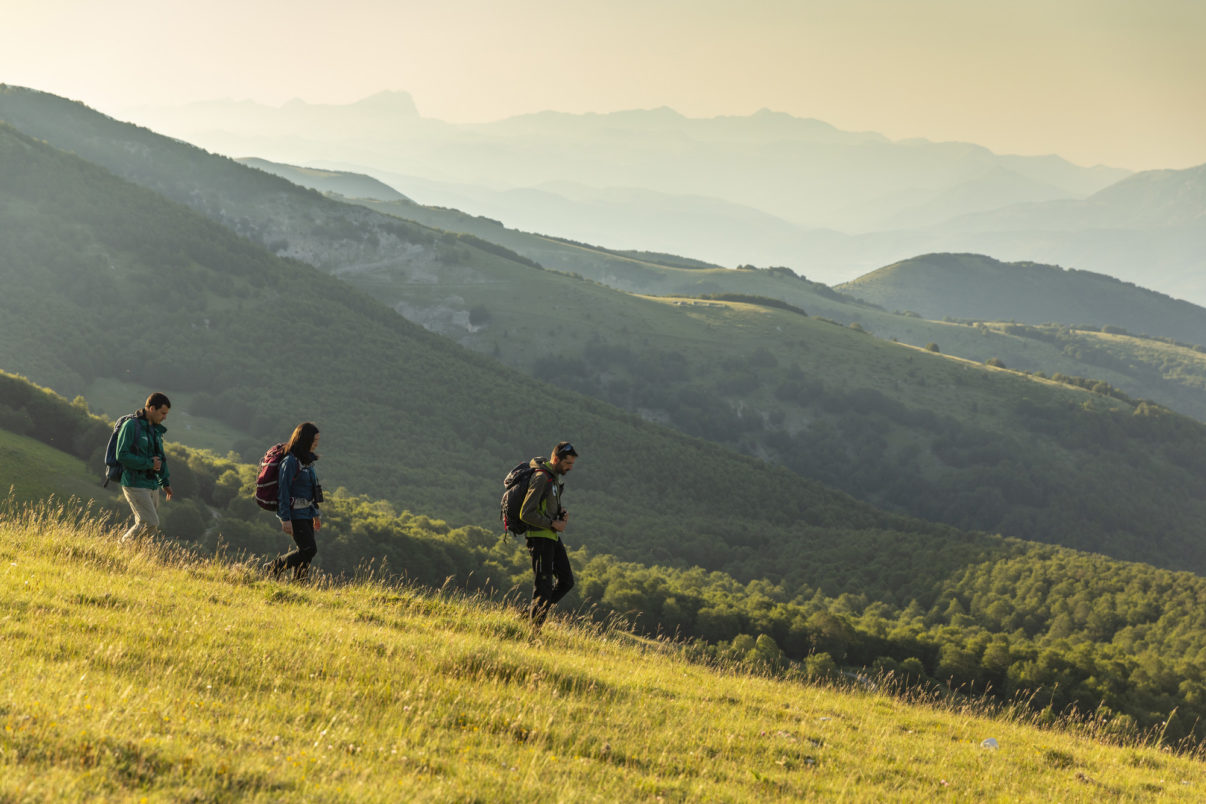
Janina Pankratz (Oder Delta)
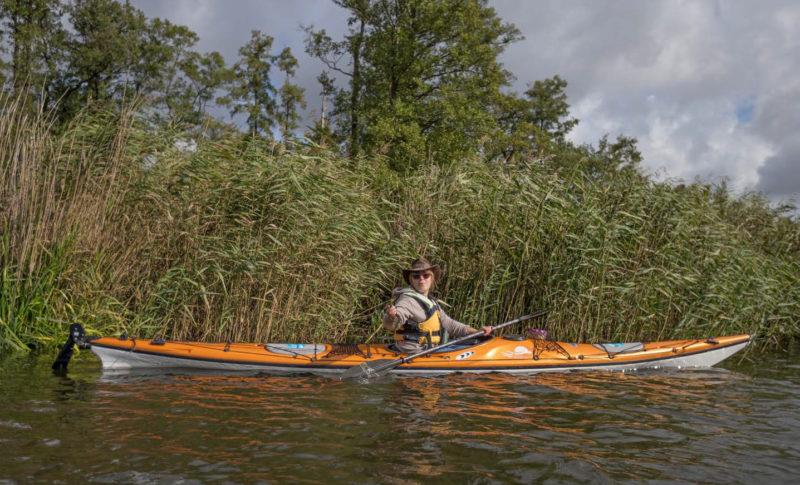
One of Rewilding Europe’s core objectives is to use nature recovery as a way to stimulate and support economic development. In the Oder Delta, which straddles the German-Polish border, our efforts to restore fish populations and support wildlife comeback are complemented by work with local partners to develop a network of nature guides. Janina Pankratz frequently guides visitors through the varied landscapes of the delta on the German side, including clients of the European Safari Company.
What impact has rewilding had on the area where you work?
Much of the German side of the delta, including the valley of the River Peene, was historically drained for agriculture, with extensive poldering taking place from the 1960s onwards. Ongoing rewilding work means many of these areas have now been reflooded, with fully functioning wetlands supporting resurgent wildlife populations.
And how has rewilding affected your life?
As the Oder Delta becomes wilder, so its reputation as a place to experience fantastic wildlife is also growing. This is a place where people can now come to spot the so-called “Big Seven” – the Atlantic sturgeon, grey seal, beaver, white-tailed eagle, Konik horse, wolf and European bison. Growth in the number of visitors is good for me, because they support my livelihood. Nature guides are important because they can help tourists to explore the delta in a sustainable way, without disturbing wildlife.
How difficult is it to make a living as a nature guide in the Oder Delta?
It is still challenging from an economic perspective, but things are gradually changing as the Oder Delta becomes wilder and more well known. Being part of the South Baltic Nature Guide Network is really valuable because it allows you to exchange information and learn from other guides. If you want to set up your own website, for example, or make your tours more interesting, all you have to do is to reach out for tips and advice. It makes you feel part of a bigger movement.
Nikolai Terziev (Rhodope Mountains)
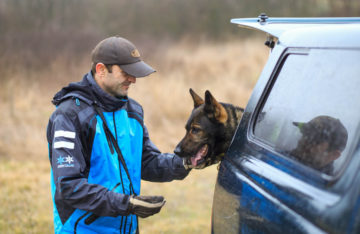
As members of the Rewilding Rhodopes team, Nikolay Terziev and his dog Bars were the first anti-poison dog unit in Bulgaria when they began working in the field in 2016. The main objective of the unit is to create poison-free areas by controlling and removing poisoned baits before they can cause any damage. Such baits are one of the main threats to populations of vultures and other scavengers in the area.
When did you first become involved with rewilding, and how has it affected your life?
I have been involved in the conservation of rare birds of prey in Bulgaria for more than 15 years, and am now part of the Rewilding Rhodopes team. Eastern imperial eagles, as well as griffon, Egyptian and cinereous vultures, have been the main benefactors. Thanks, in part, to rewilding efforts, the first two of these are now increasing in number, which means there are more wild birds in the sky. I feel responsible for their future and have built my whole life – and the life of my family – around this.
Why is rewilding important for the Rhodope Mountains? How can it benefit the people and wild nature of the area?
Rewilding is really important because the sustainability of the region depends on biodiversity. Healthier and more resilient natural ecosystems have greater functionality, which means they can provides more benefits to local communities. Those communities, in turn, are motivated to take care of the environment. It’s a circular system that represents a win-win for people and nature.
Is wild nature important for you personally?
I have been interested in nature from my early childhood. One of my first memories is my grandfather telling me stories about different animals. I was five years old when took the decision to be involved in conservation! Wild nature is critical for me – being outside in nature is energising and rejuvenating. Humans don’t own the Earth – we are part of it. When people are disconnected from nature they tend to forget that.
Cristi Ioan Vela (Southern Carpathians)
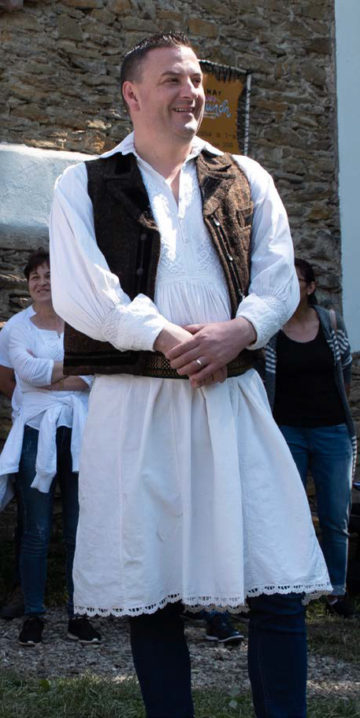
Rewilding Europe and WWF Romania have been working to reestablish free-roaming populations of European bison in the Southern Carpathians of Romania for the last six years. This record-breaking reintroduction programme, which became the LIFE Bison project in 2016, would have been impossible without the support of the local village of Armeniş. Cristi Ioan Vela became mayor of Armeniş in 2016.
How are you involved with the bison reintroduction programme?
The mayor’s office enables collaboration between local companies and the LIFE Bison team, in order to support bison releases in the rewilding area. I am also involved in events promoting the rewilding area in terms of nature-based tourism and the presence of the bison.
Are you optimistic about the future of the reintroduced bison?
There are many actions that need to be carried out and maintained to support the reintroduction programme. These range from monitoring the bison to keep them a safe distance from villages, through to collaborating with key stakeholders such as foresters and hunters to promote coexistence. Despite these challenges, I am optimistic. I think that the bison can continue to bring positive economic change to Armeniş through nature-based tourism. We need to keep providing people in our community with business information and support, and to exchange insight and knowledge with similar initiatives in other countries.
What message would you give to people thinking of visiting Armeniş and seeing bison in the wild?
To come with confidence and excitement because the bison is a special animal that is definitely worth seeing in the beautiful surroundings of the Southern Carpathians. We have nearly 30 families from four villages involved in nature-based tourism now – people come here to track bison, reconnect with nature, enjoy traditional food and culture.
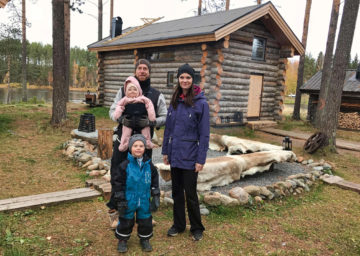
Niklas Wede (Swedish Lapland)
Tucked away in a bend of the Råne River, the Arctic Retreat eco-lodge enjoys a stunning setting in the heart of Swedish Lapland. This unique accommodation is the inspiration of Niklas Wede, incorporating the best of back-to-nature immersion with delicious home cuisine, warm hospitality and gorgeous panoramas. The retreat became part of the European Safari Company portfolio in 2017.
How has your business benefitted from association with the European Safari Company?
The Arctic Retreat is a relatively new venture, so we’re still finding our feet. Going forwards we’re looking forward to a closer cooperation with the European Safari Company because we need to raise the profile of our business. I am sure this relationship will bring interesting guests that are passionate about wild nature and its recovery. Being part of the European Safari Company portfolio is a great way to increase our exposure in European markets, and we are proud to be associated with an organisation that is dedicated to rewilding. Intensive forestry is always a threat to tourism and rewilding has the potential to battle this, especially when it comes to forestry close to the river. This would let us keep the unique and wild environment.
Can you describe the wild nature surrounding the Arctic Retreat, for those who have never visited?
We are lucky enough to enjoy a fantastic natural setting, located next to a rapid in the largest free-flowing forest river in northern Europe. Vast boreal forests surround us – we like to imagine ourselves as the last bastion of civilisation along the river!
Is wild nature important for you personally? Have you always been interested in the wild?
Wild nature is hugely important for me personally. It’s the only reason to start a small business in the tourism sector far away from everything else – now I couldn’t imagine living and working anywhere else. As far back as I can remember I’ve always been outdoors picking berries, hiking, skiing and running.
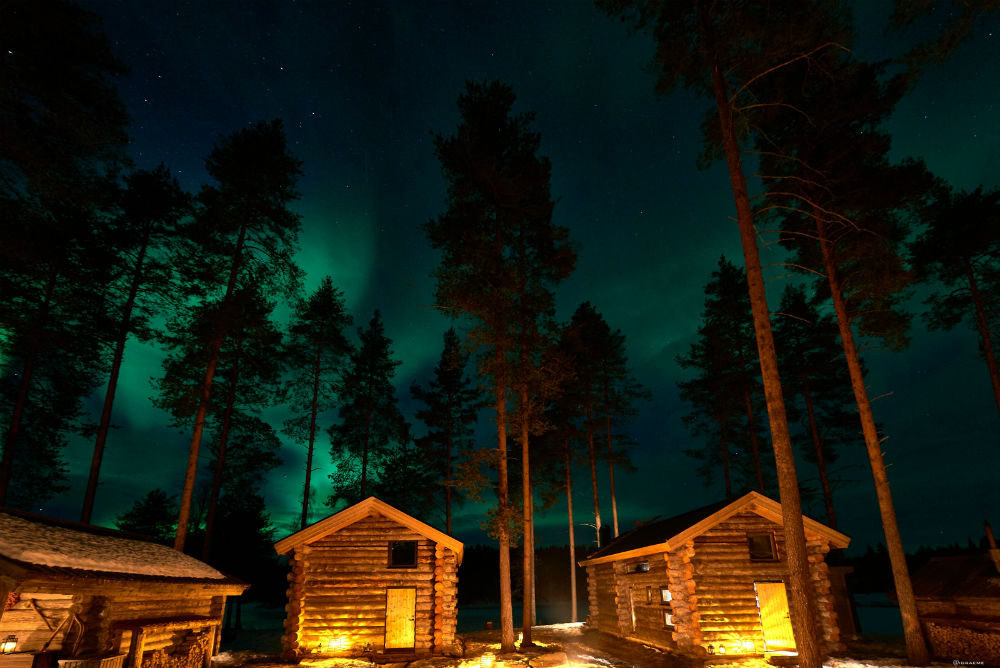
Want to know more?
This blog is one of the stories from our Rewilding Europe Annual Review 2019. Follow the link to this beautifully illustrated, 101-page publication for The people perspective item and other compelling rewilding stories.

